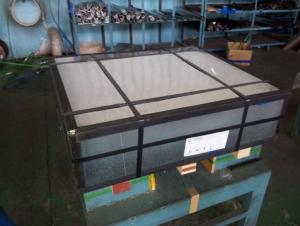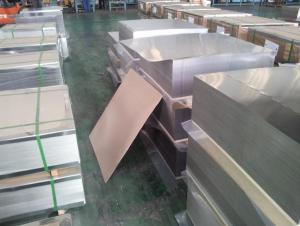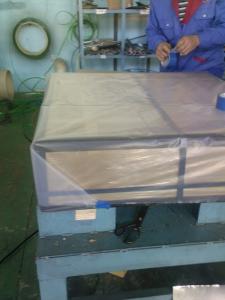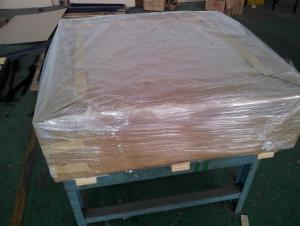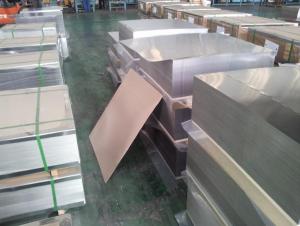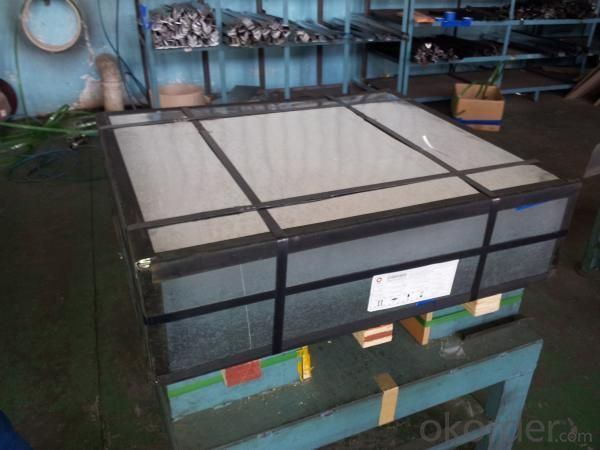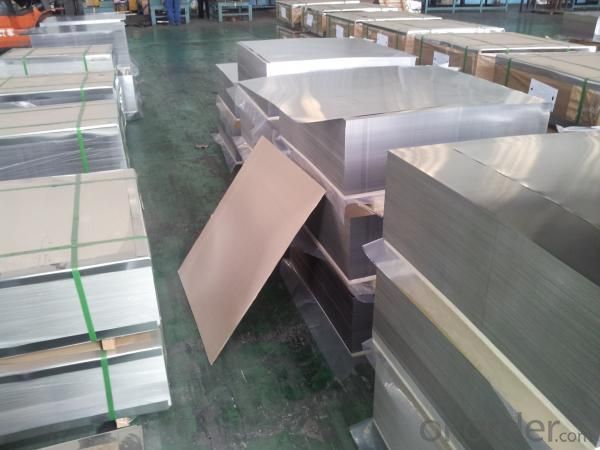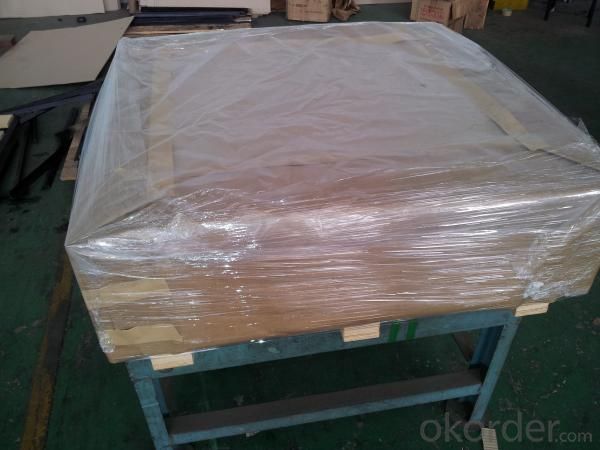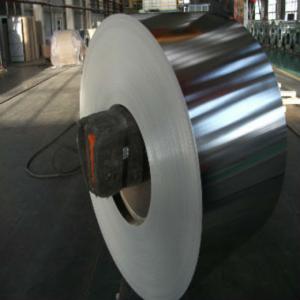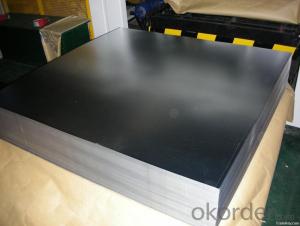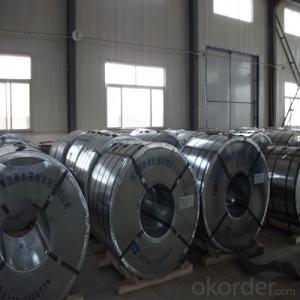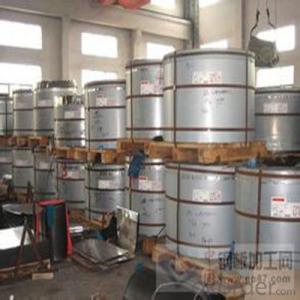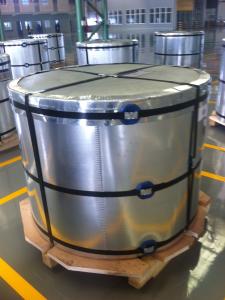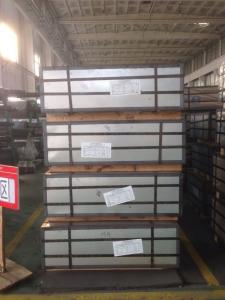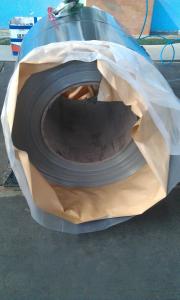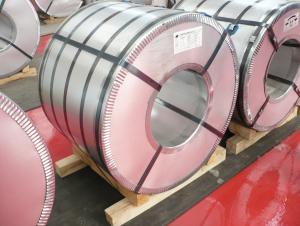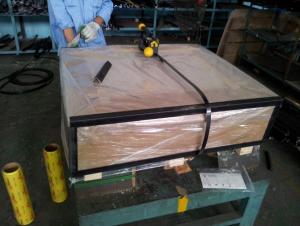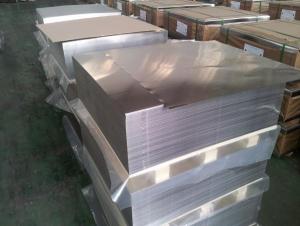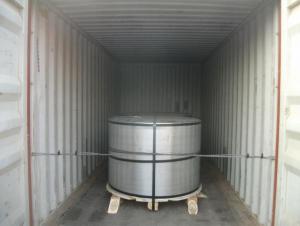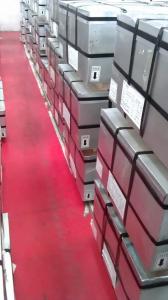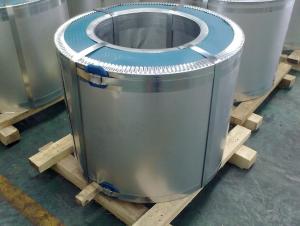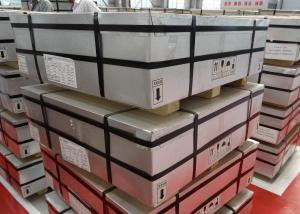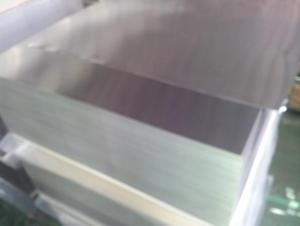Tinplate For Chemical Use-CFX
- Loading Port:
- China Main Port
- Payment Terms:
- TT or L/C
- Min Order Qty:
- 20 Tons ~25 Tons m.t.
- Supply Capability:
- 40000 MT Per Month m.t./month
OKorder Service Pledge
OKorder Financial Service
You Might Also Like
General information of Tinplate For Chemical Use
|
Steel Type |
SPCC |
|
Temper (BA&CA) |
T1~T5, DR8 |
|
Coating |
2.8~8.4g/m2 |
|
Thickness & Tolerance |
0.15~0.5mm (Tolerance:±0.01mm) |
|
Width & Tolerance |
600~1000 mm(Tolerance: +2/-0mm) |
|
I.D |
508 MM |
|
Coil Weight |
3~10 MT |
|
Passivation |
311 |
|
Oiling |
DOS |
|
Surface Finish |
Bright ,Stone ,Silver ,Matte |
|
Min Order |
25 Tons for 1 20 feet FCL |
|
Package |
Seaworthy Export Standard Wooden Pallet |
|
Standard Available |
GB/T2520-2000, JIS G3303, ASTM A623, BS EN10202 |
|
Lead Time |
35 days after receiving buyer's original L/C or Prepayment |
|
Special specifications are available on customers' requirements. | |
Technical data of Tinplate For Chemical Use
|
Chemical Composition(%) |
Mechanical Property |
|
C:0.04~0.06 |
Yield Strength: (Mpa):280~320 |
|
Si:0.01~0.03 |
TensileStrength: (Mpa):340~390 |
|
Mn:0.18~0.22 |
Elongation:20%~30% |
|
P:0.014~0.016 |
------------- |
|
S:0.006~0.009 |
Application of Tinplate For Chemical Use
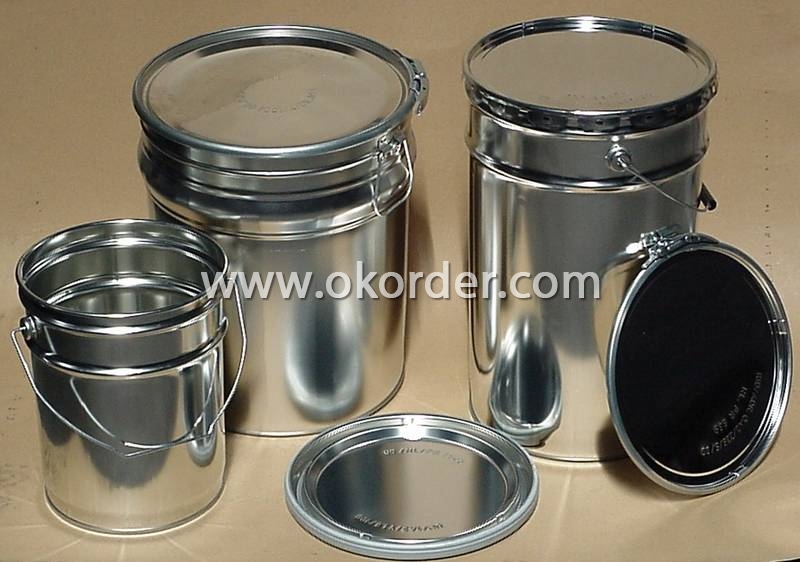
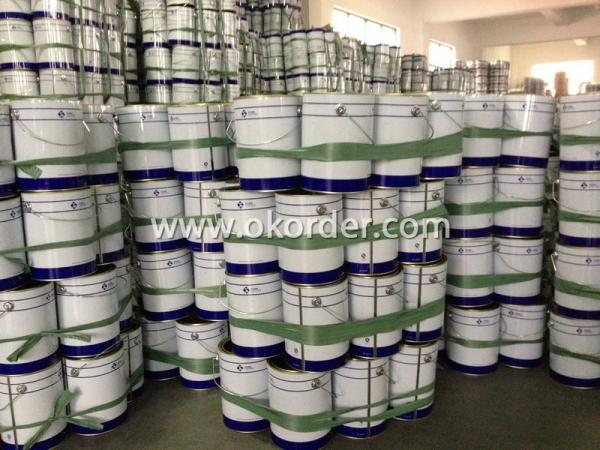
Tinplate is widely used for making all types of containers such as artistic cans, tea cans,
painting cans, chemical package cans and metal printing etc. Its applications are
not limited to containers; recently, tinplate has also been used for making
electrical machinery parts and many other products.
Equipment and Facility
Tin Coating Line
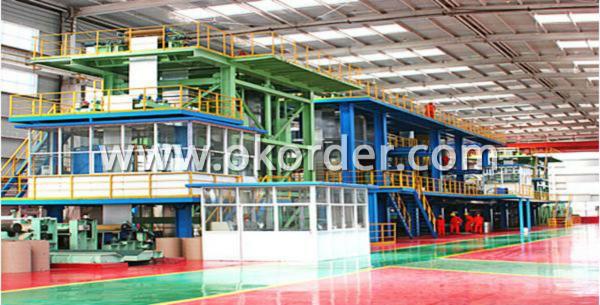
Cold Rolling Mill Batch Annealing Furnaces
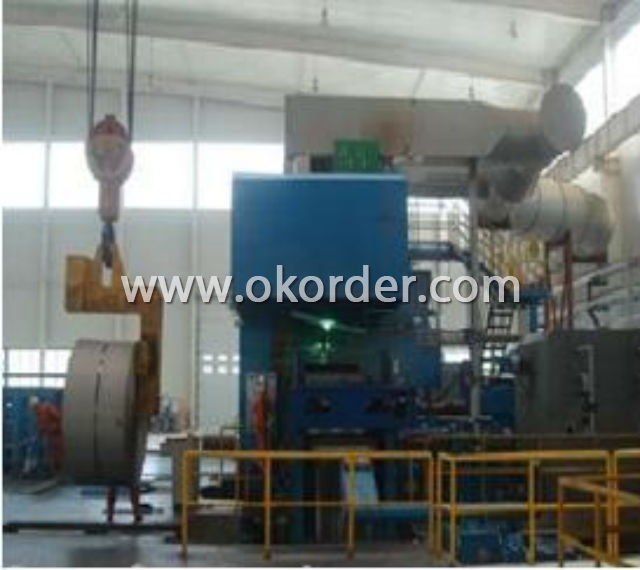
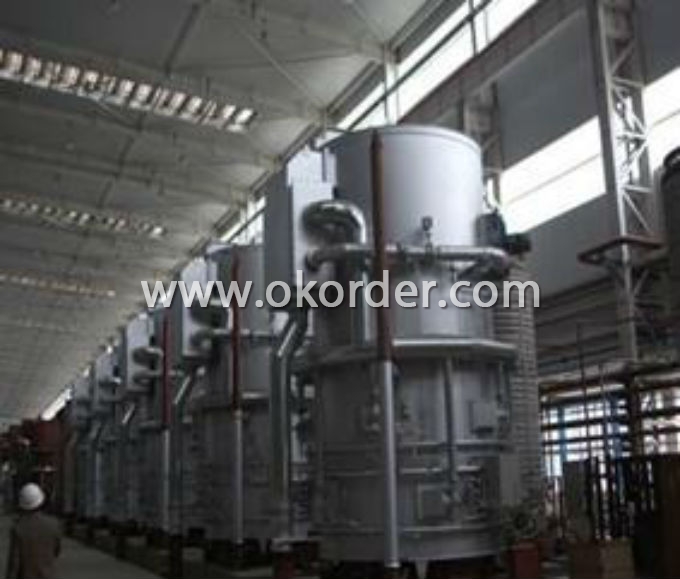
Cutting Line Stock Area
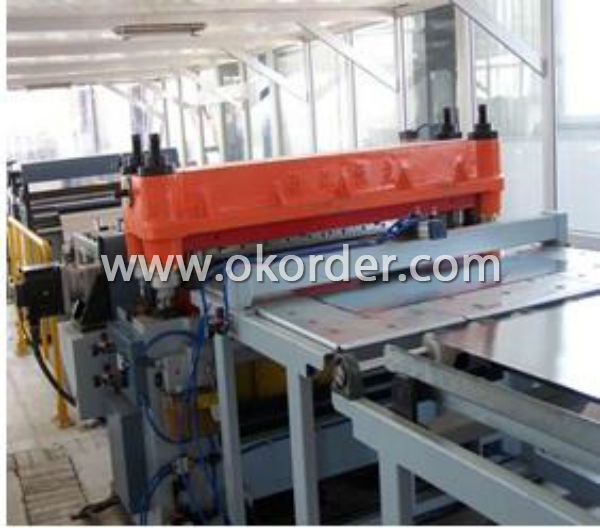
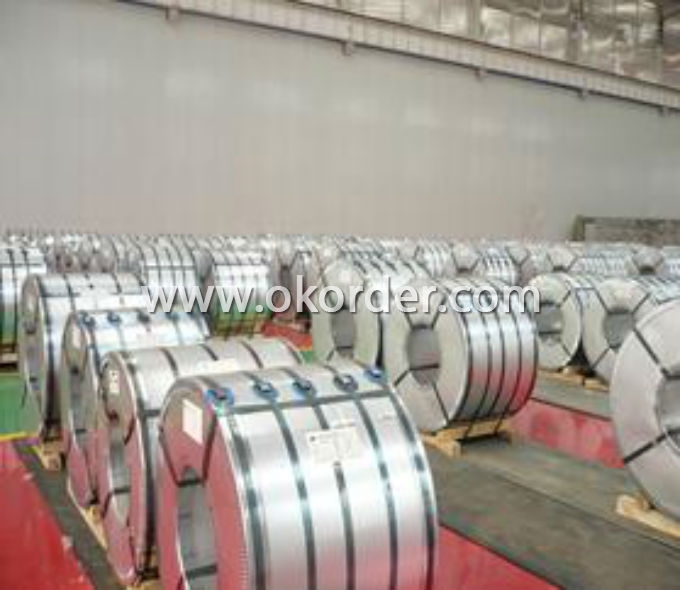
Quantity Control System
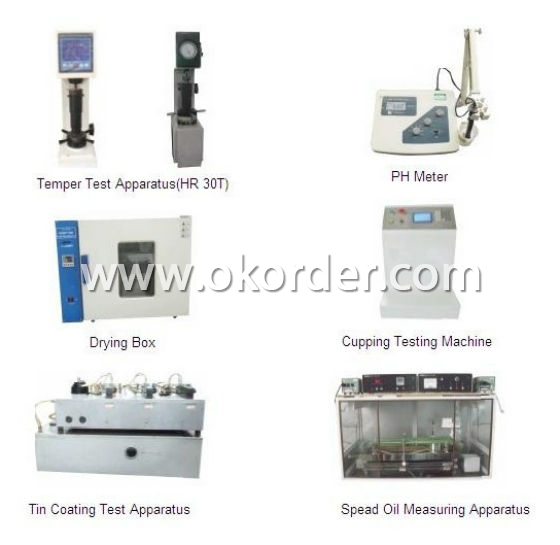
- Q: What are the different ways to store tinplate containers?
- There are various ways to store tinplate containers, including stacking them on shelves or in cabinets, using storage bins or containers, hanging them on hooks or pegboards, or placing them in specially designed storage racks or trolleys.
- Q: What are the environmental impacts of tinplate production?
- The production of tinplate has several significant environmental impacts. Firstly, the extraction of tin from its ore requires extensive mining operations, which can result in habitat destruction, soil erosion, and water pollution. Additionally, the smelting process releases various air pollutants, including sulfur dioxide and particulate matter, contributing to air pollution and potentially causing respiratory issues. Furthermore, the tin coating process involves the use of chemicals, such as acids and solvents, which can lead to water contamination if not properly managed. Lastly, the disposal of tinplate waste, including scrap and byproducts, can pose challenges in terms of proper handling and recycling, potentially leading to landfill accumulation. Overall, the environmental impacts of tinplate production underline the importance of adopting sustainable practices and promoting circular economy principles in this industry.
- Q: How is tinplate tested for corrosion resistance?
- Tinplate is tested for corrosion resistance through various methods, including salt spray testing, electrochemical impedance spectroscopy, and weight loss analysis. These tests evaluate the ability of tinplate to withstand exposure to corrosive environments and provide insights into its protective properties.
- Q: What are the different types of tinplate?
- There are three main types of tinplate: Single Reduced (SR), Double Reduced (DR), and Electrolytic Chromium Coated Steel (ECCS).
- Q: Tin plated tin plated?
- Can electroplate.If the parts need tin plating, it is better not to use tinplate (tin plated steel / strip), galvanized steel plate / ordinary steel plate / strip with or without plating.
- Q: How is tinplate affected by different types of sauces and condiments?
- Tinplate is generally resistant to most sauces and condiments due to its protective coating. However, highly acidic or salty sauces may cause corrosion over time, compromising the tinplate's integrity. It is advisable to promptly clean any spills or residues to minimize potential damage.
- Q: How is tinplate coated for construction materials?
- Tinplate is coated for construction materials through a process called electrolytic tinning. This involves immersing the steel sheet in an electrolyte bath and passing an electric current through it. The electric current causes tin ions to be reduced and deposited onto the steel surface, forming a thin layer of tin coating. This coating provides corrosion resistance and enhances the durability of the construction materials.
- Q: How is tinplate used in the automotive industry?
- Tinplate is commonly used in the automotive industry for manufacturing various components such as fuel tanks, exhaust systems, and body panels. It provides excellent corrosion resistance, making it suitable for protecting these parts from rust and other environmental damage. Additionally, tinplate is lightweight yet strong, contributing to fuel efficiency and overall vehicle performance.
- Q: How has tinplate evolved over the years?
- Tinplate has evolved significantly over the years in terms of its production process, durability, and applications. Initially, tinplate was made by coating iron sheets with a thin layer of tin to prevent corrosion. However, as technology advanced, electroplating replaced the traditional hot-dipping method, resulting in a more efficient and cost-effective production process. Additionally, the development of various alloy coatings has further enhanced the durability of tinplate, making it more resistant to rust and damage. Moreover, tinplate has expanded its applications beyond traditional cans, finding its way into packaging for food, beverages, aerosols, and cosmetics. Overall, the evolution of tinplate has revolutionized the packaging industry, offering improved quality, versatility, and sustainability.
- Q: What are the main quality standards for tinplate?
- The main quality standards for tinplate include factors such as tin coating thickness, surface finish, dimensional accuracy, adhesion strength, resistance to corrosion, and overall product appearance. These standards ensure that tinplate meets the necessary requirements for various applications such as food packaging, electrical components, and decorative purposes.
1. Manufacturer Overview
| Location | Hebei,China |
| Year Established | 2006 |
| Annual Output Value | Above US$100 Million |
| Main Markets | Singapore;Belgium |
| Company Certifications |
2. Manufacturer Certificates
| a) Certification Name | |
| Range | |
| Reference | |
| Validity Period |
3. Manufacturer Capability
| a) Trade Capacity | |
| Nearest Port | Tianjin |
| Export Percentage | 1% - 10% |
| No.of Employees in Trade Department | |
| Language Spoken: | English;Chinese |
| b) Factory Information | |
| Factory Size: | Above 240,000 square meters |
| No. of Production Lines | Above 11 |
| Contract Manufacturing | |
| Product Price Range | High;Average |
Send your message to us
Tinplate For Chemical Use-CFX
- Loading Port:
- China Main Port
- Payment Terms:
- TT or L/C
- Min Order Qty:
- 20 Tons ~25 Tons m.t.
- Supply Capability:
- 40000 MT Per Month m.t./month
OKorder Service Pledge
OKorder Financial Service
Similar products
Hot products
Hot Searches
Related keywords
